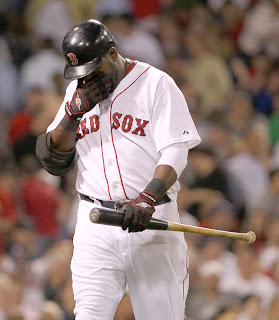photo courtesy of Jim Rogash/Getty Images
The system
Why did they change their system to one more oriented towards pitching and defense? Why fix what wasn’t broken? So far, their changes aren’t working out, as the Sox are already in the hole with a 7-10 record. Last year, they ended up with a 95-67 record, and this year, they’re on pace to reverse that with a 67-95 record. According to last year’s final standings, that record would tie Boston for second to last in the American League. The Red Sox have to pray that their system starts to work or abandon ship if they hope to see the postseason.




